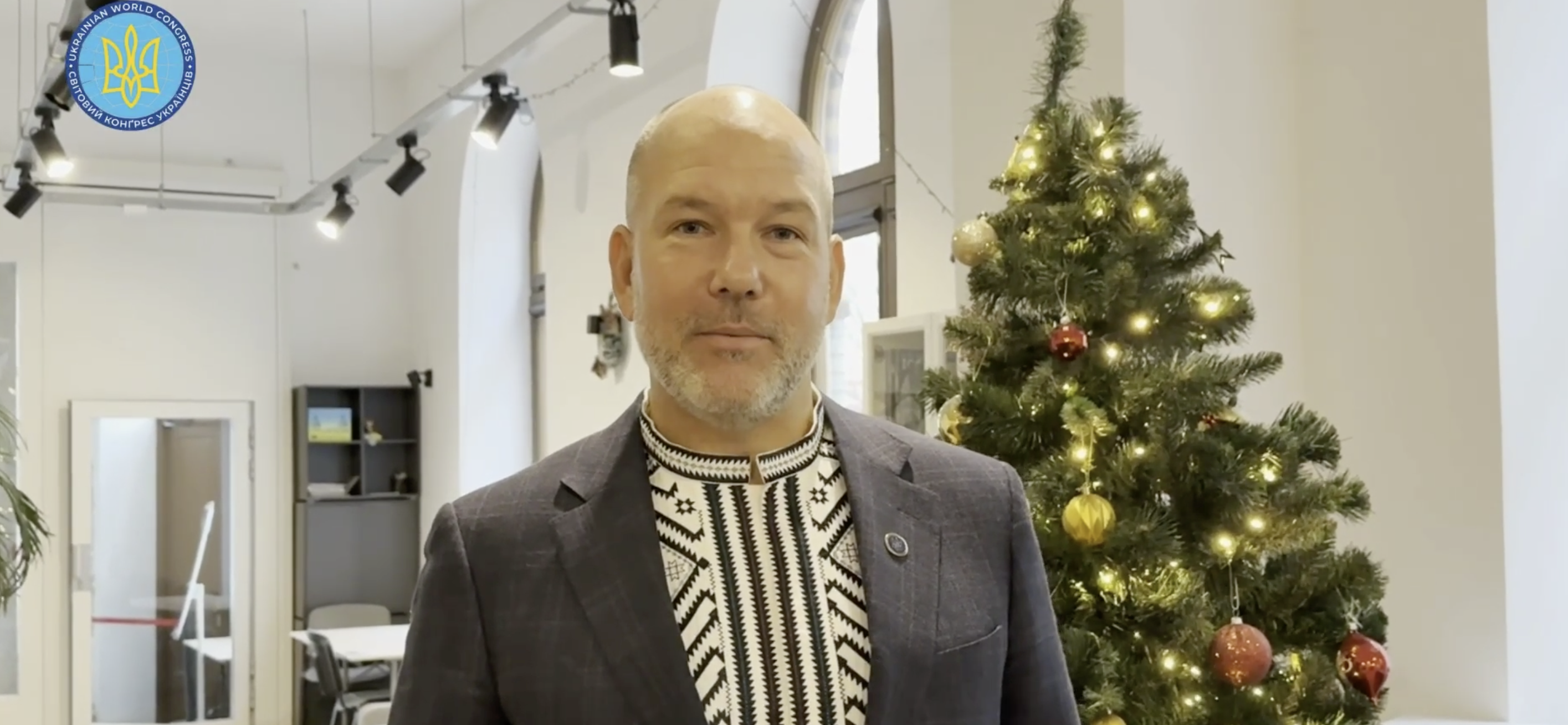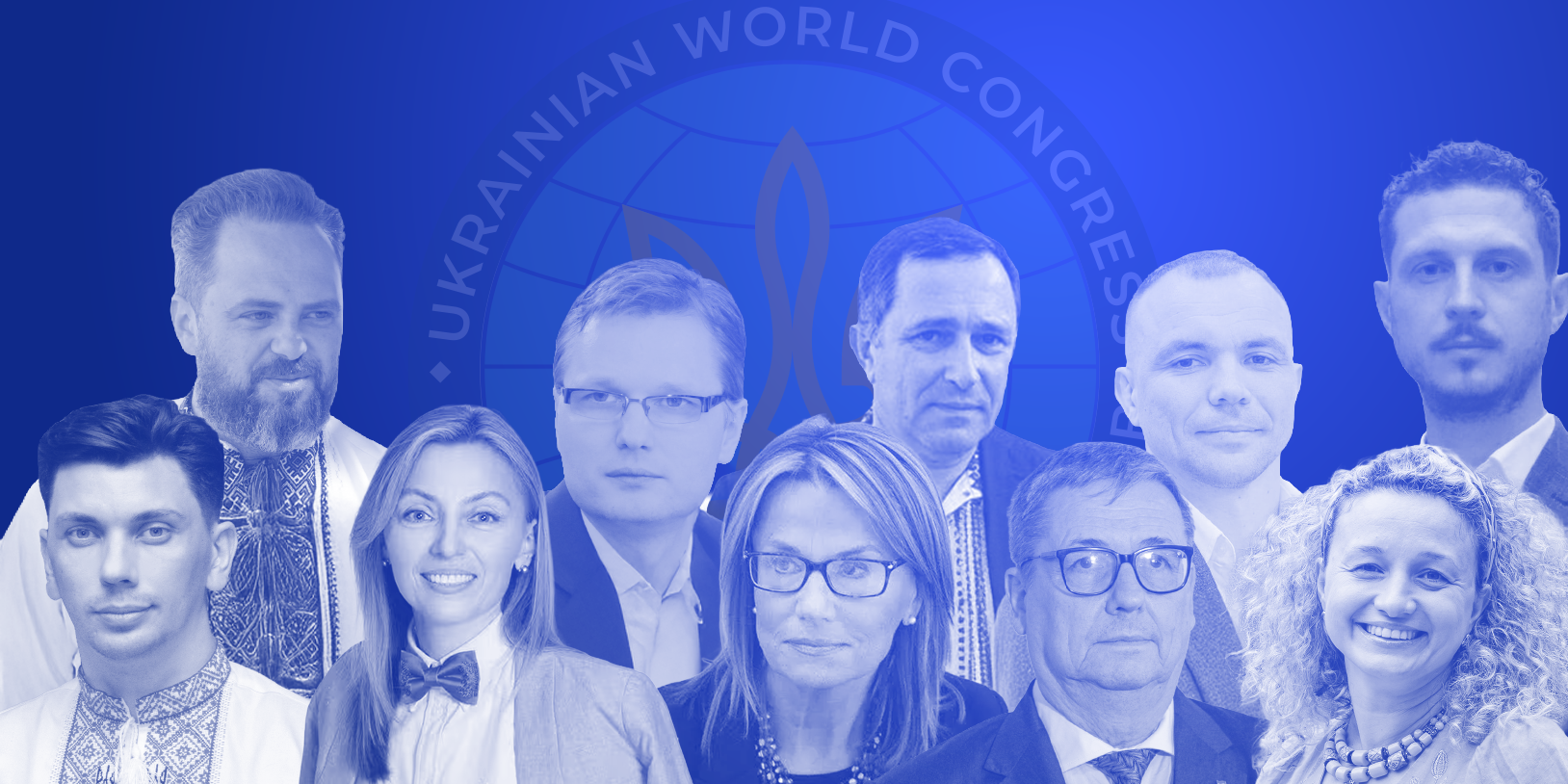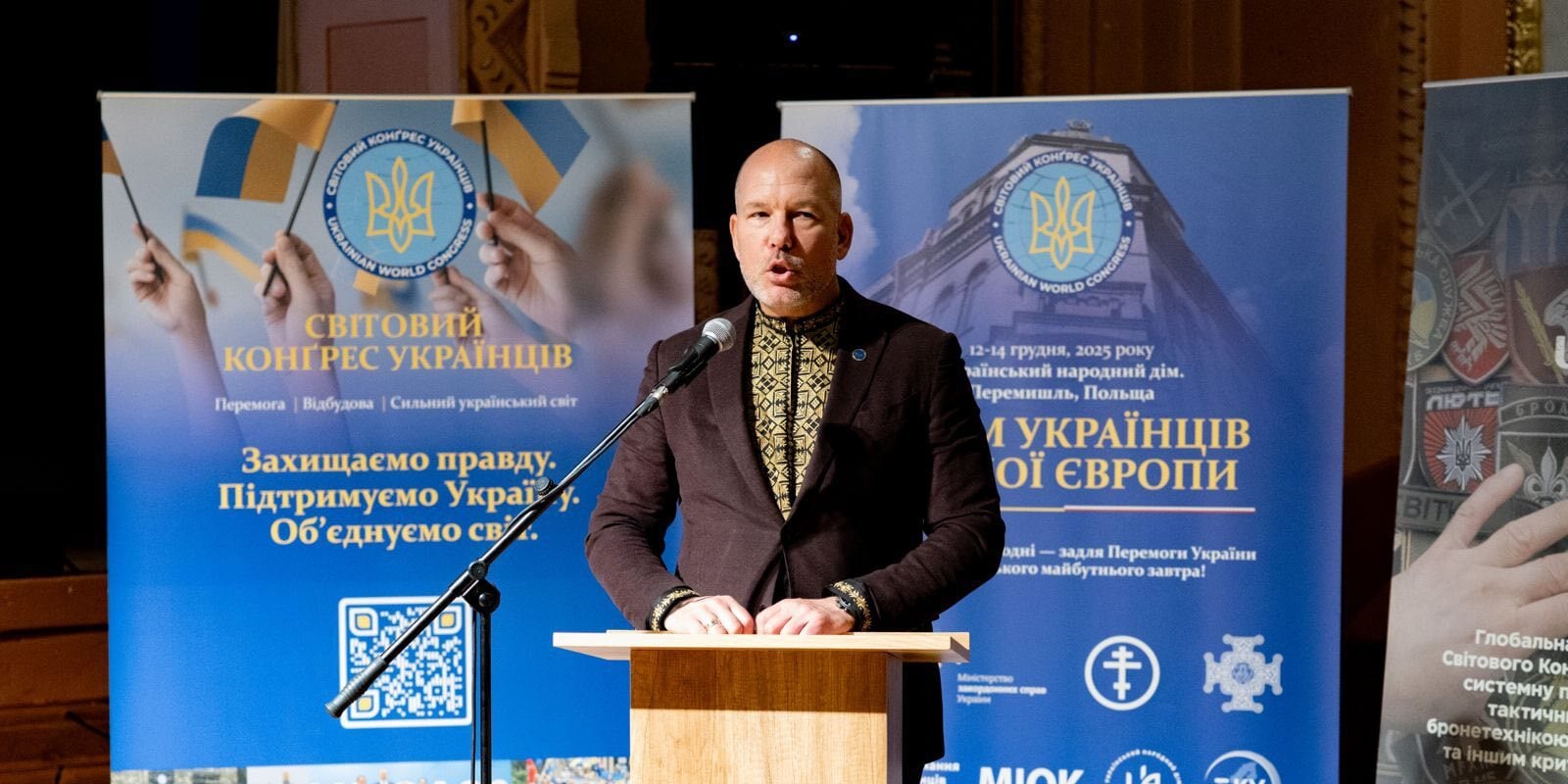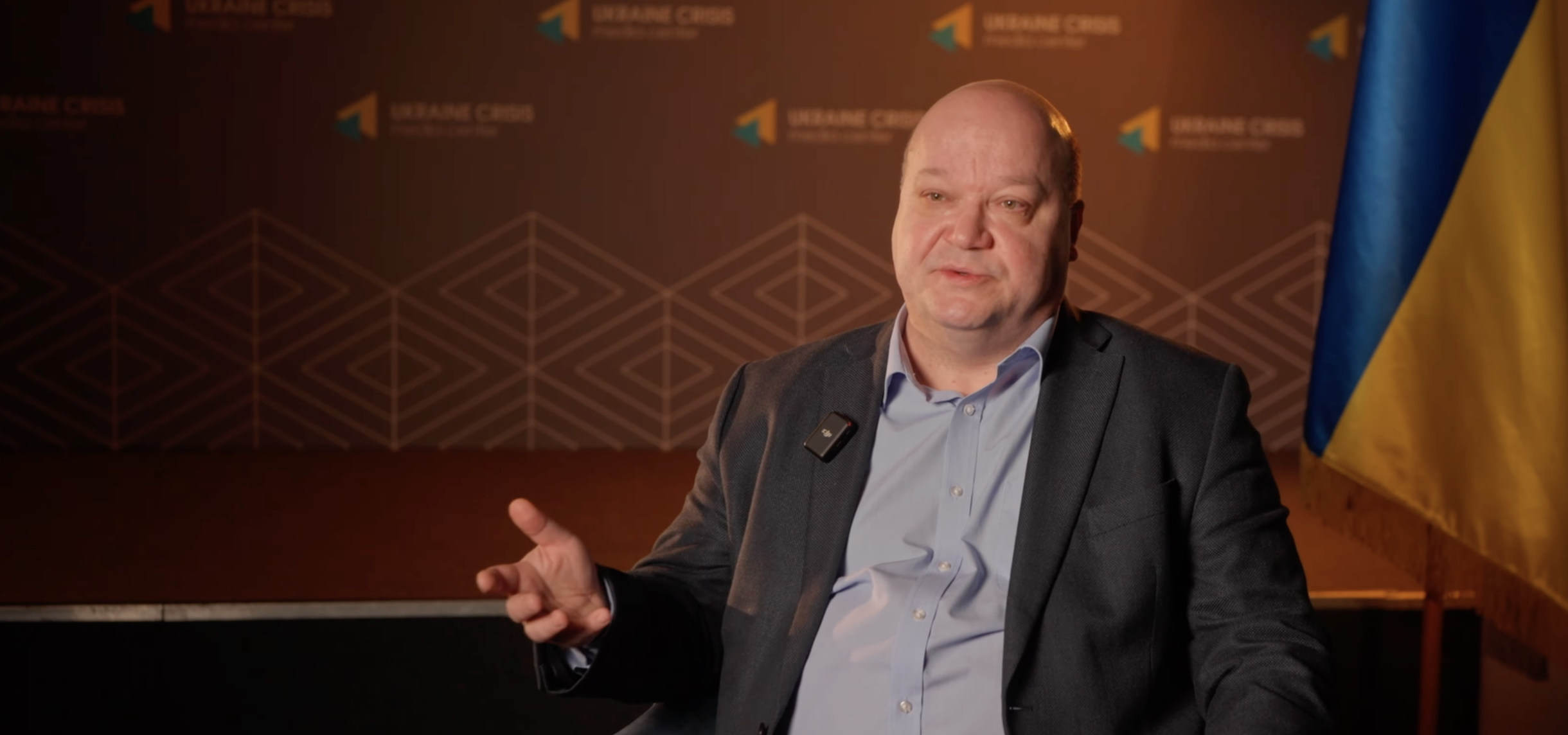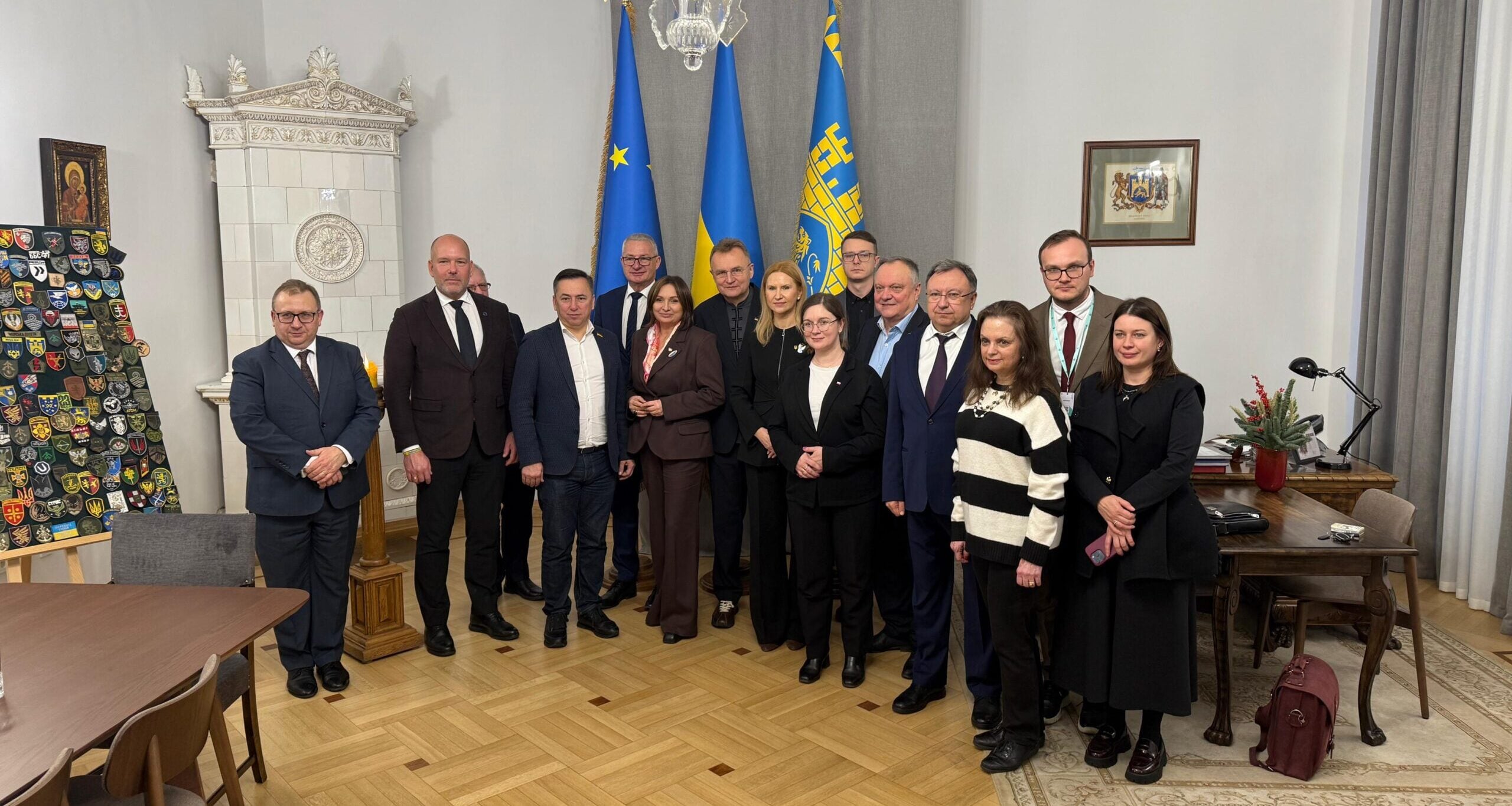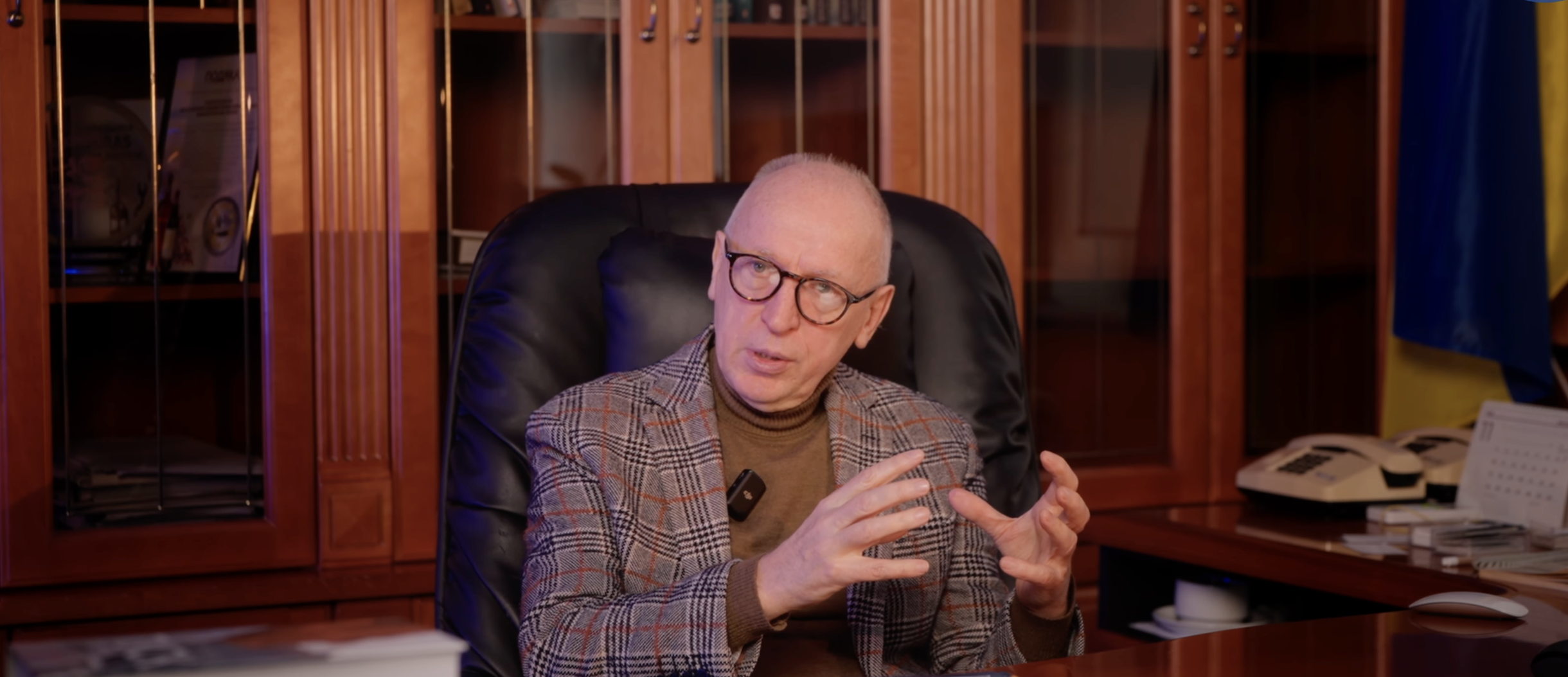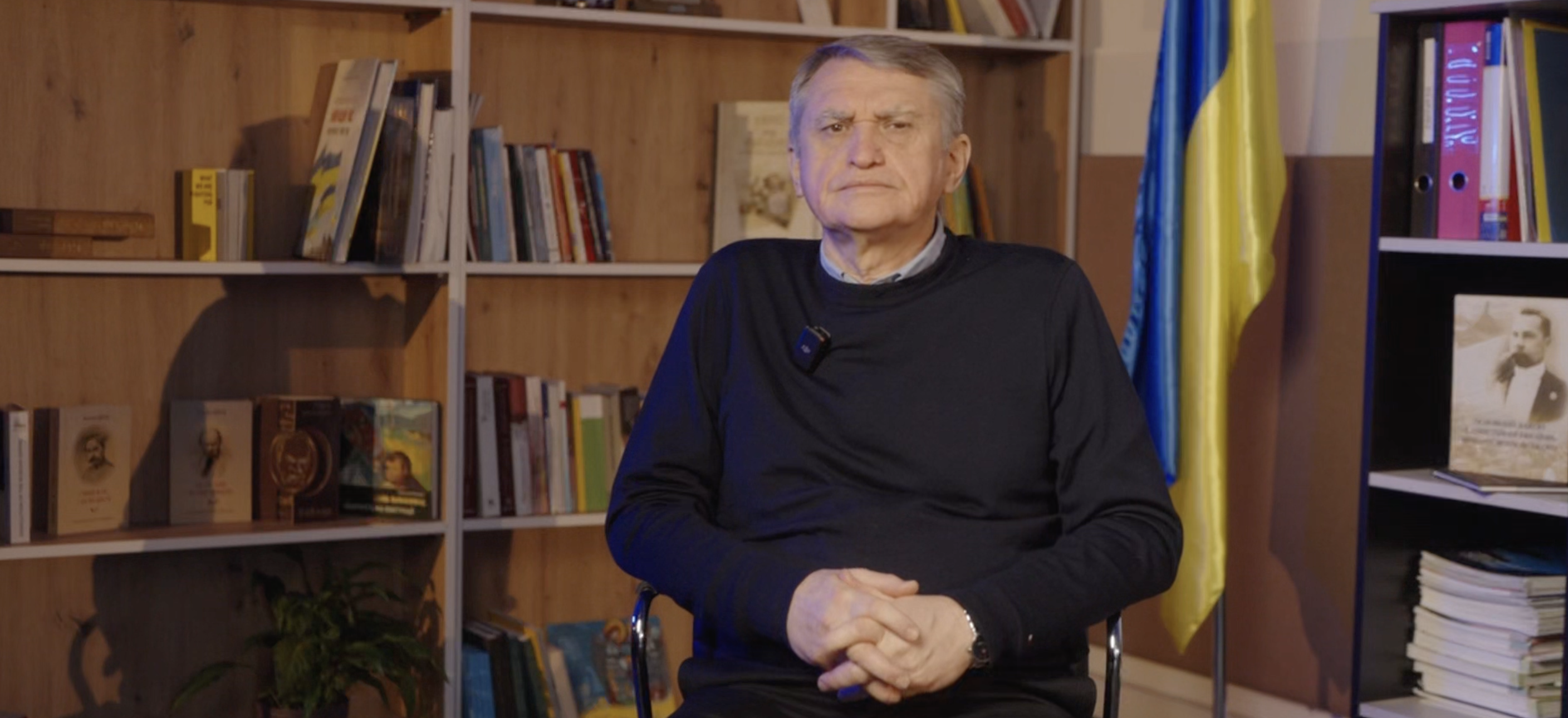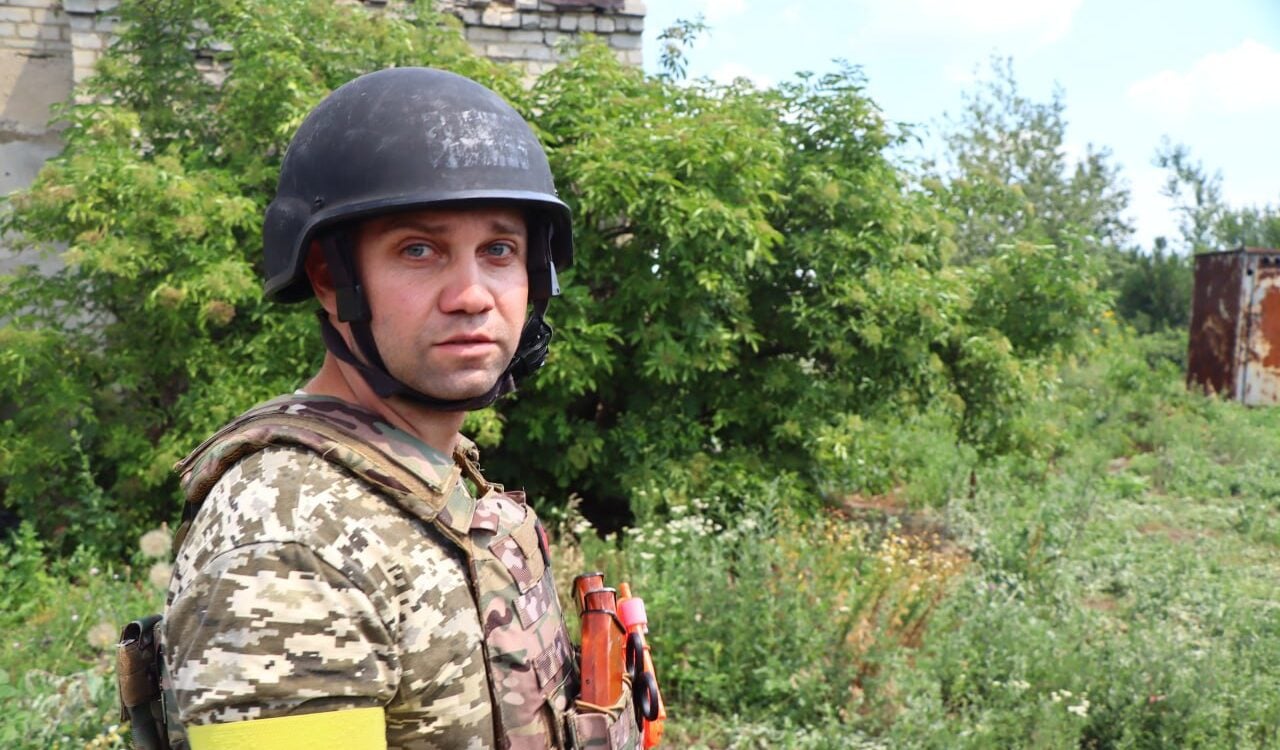
Editor’s note: The following is an interview with Interior Ministry paramedic Oleksandr Savenko who was in Mariupol when Russian forces started to target the Azov Sea coastal city in February 2022. That same month, Savenko was deployed to the Donetsk regional town of Pokrovsk to continue service. Unite with Ukraine, the Ukrainian World Congress’s initiative, conducted the interview and it is republished with their permission.
Please tell us a little about yourself and your experience in law enforcement.
Oleksandr Savenko: After graduating from high school in 2006, I planned to join the Armed Forces for obligatory duty with the goal of eventually working in law enforcement. I served in the Armed Forces from 2006 to 2007 before joining the police force in 2008.
Initially, I worked in the security police, where my primary responsibility was security rather than traditional police duties. In 2009, I became a junior inspector in the detention group, where I responded to complaints about apartment and store burglaries and patrolled the streets. This position was part of the state security service.
In 2011, I joined the district police department and was assigned as a convoy officer. I was responsible for escorting criminals from the Bakhmut pre-trial detention center to the Kostiantynivka courthouse and back.
While working at the Kostiantynivka City Police Department for five years, I enrolled in the Kharkiv National University of Internal Affairs. In 2017, I was offered a position as a personal safety instructor at a training center, a new role created for training police officers in advanced first aid and tactical response. Since then, I have attended Canadian courses on tactical, physical, firearms, and first aid training.
You mentioned that you underwent medical training; can you elaborate?
Oleksandr Savenko: In 2017 and 2018, I obtained globally recognized certifications as a tactical training teacher, which included physical and tactical training. Canadian trainers came to Chernihiv, where I underwent a month of study. Afterward, I conducted teaching sessions in Lviv twice to demonstrate my teaching credentials. I initially enrolled as a student for a month before progressing to train other teachers to validate my qualifications.
In 2018, I crossed paths with Kateryna Sukhomlynova, the head of the Maltese Service Union in Mariupol. We both underwent first-aid training together. I dedicated two weeks in Mariupol to these classes, hoping that this knowledge might enable me to save lives in the future. Before the full-scale invasion, I received first aid training from the Red Cross. At that time, there was less focus on tactical medicine, with more emphasis on basic first aid.

You have extensive experience in training and work, which leads to my next question. Many people continue working as police officers. Why did you decide to work as a paramedic rather than a police officer during the full-scale invasion?
Oleksandr Savenko: On the evening of February 25, we evacuated Mariupol one day after the full-scale invasion began. My team and I were involved in a combat mission, the details of which I cannot disclose. We were responsible for securing and transporting precious cargo and delivering it to Pokrovsk. On March 7, 2022, I received a call from General Ruslan Osipenko, head of the Donetsk Regional Police. He informed me that paramedic groups were needed due to ongoing shelling, as people required first aid, but ambulances were refusing to go because of the danger. As trained police officers in first aid, my team and I, with our courage and resilience, became paramedics to assist the population in this critical situation.
What memory from the full-scale war will impact you most that you will remember for the rest of your life?
Oleksandr Savenko: There are many memories from this time, but one that stands out happened recently, about three weeks ago. One of my team members was injured, and I was at the hospital with his mother, anxiously waiting for news from the doctors. I hoped he wouldn’t die or be left disabled. Previously, I mentioned another incident when asked this question, but now, the memory of this situation is especially poignant. My youngest paramedic was injured during shelling in Pokrovsk, suffering two punctured lungs. We had been providing aid to citizens and ensured no injured people were left at the site. One of my paramedics sensed a threat and suggested we leave because additional fire may occur. We evacuated, but he returned to the hospital, and just as we missed each other, he was caught in a second wave of shelling.
Is he okay now?
Oleksandr Savenko: He is currently recovering at the Interior Ministry Hospital in Kyiv. His lungs are stable, but he is still dealing with a shoulder injury that might require surgery or a prosthesis. I hope everything turns out for the best for him.
Unite for Ukraine: How do you cope psychologically with the possibility of your colleagues being seriously injured or killed during an evacuation?
Oleksandr Savenko: We understand the importance of our work. We help the population and save the lives of our brothers in arms, even though we know we could face danger ourselves. We often gather with the team to talk, support each other, and joke around to relieve psychological pressure. This mutual support is crucial as we deal with death and injuries, including those affecting children and loved ones. Being there for each other helps us navigate these challenging moments, making us feel connected and part of a larger community.

Have you ever had to provide emergency care to your colleagues?
Oleksandr Savenko: I have not directly assisted my fellow paramedics but helped other military paramedics and volunteers. There have also been instances where police officers and paramedics had to aid each other. We often talk about how we avoided additional shelling due to chance decisions. For example, we may have taken a wrong turn and gotten lost, inadvertently avoiding a second shelling. In these cases, we were simply fortunate. There have also been times when my colleagues have provided emergency care to one another as paramedics and similar situations have occurred with other police officers.
Since becoming a paramedic during the full-scale war, how has your attitude toward death changed? Working in combat-related situations is very dangerous, and paramedic work is no exception. Death is a frequent occurrence in your line of work, so how has this impacted your perspective on mortality?
Oleksandr Savenko: It’s important to remember that feeling some fear in emergencies is normal and can help us care for ourselves and our team. However, I am starting to lose that sense of fear, which could be risky. Fear keeps us alert and focused on safety. As this fear diminishes, our instinct for self-preservation weakens, leading to a lack of vigilance and caution.
This might be a common issue for many Ukrainians right now. Constant exposure to danger can cause people to overlook warning signs and become less cautious. Living in an environment where missile strikes could happen at any time forces people to adapt, sometimes at the cost of their vigilance.
Could you describe a typical day for a paramedic so our readers can better understand?
Oleksandr Savenko: A typical day starts with a morning briefing during which we give instructions to the team, divide into groups, and assign roles. The main group deploys in armored vehicles, and additional groups are sent if more assistance is needed. Depending on the tasks, we begin our shift equipped with weapons, personal protective gear, medical kits, and backpacks.
If we are on duty in the city, the situation differs from when we need to deploy to the front lines. After a round of shelling, we receive information from the duty station or ambulance service about the location and impact of the shelling. If there are injured people, we deploy in armored vehicles to provide assistance and survey the area for additional casualties. We follow the MARCH TCCC algorithm to assess the situation and injuries. Critical bleeding is treated immediately. Afterward, we write a report on the work performed and report the outcomes to the leadership.
How many calls do you receive per day to rescue people?
Oleksandr Savenko: The number of calls we receive varies significantly. Some days, we may not get any calls, while on other days, we may respond to many. For instance, in 2023 in Kostiantynivka, I responded to 13 calls in a single day, and we barely managed to restock our tactical medical supplies. The frequency of calls depends on the level of activity at the front. Sometimes, additional paramedic teams are required when one team cannot manage the situation alone. My personal record for responses in one day is 13.

How does being a paramedic in the Donetsk region differ from being a paramedic in other areas?
Oleksandr Savenko: Working as a paramedic in the Donetsk region presents unique challenges. Specialized units operate in Donetsk and Zaporizhzhia regions and, to my knowledge, in Kherson and possibly Kharkiv regions. In other areas, such specialized units do not exist, and our instructors from the training center became paramedics out of necessity during the full-scale invasion.
When discussing the specifics of a paramedic’s work, what equipment do you feel is lacking? Is there currently restricted access to medications and equipment? How do you evaluate this situation?
Oleksandr Savenko: We are currently experiencing shortages of armored vehicles and equipment to protect against drones. Additionally, we do not have enough Starlink devices for communication, which can be attached magnetically to vehicles. Unfortunately, these resources are limited.
For instance, in December, during a combat mission, our unit encountered an incident where a drone hit our vehicle’s engine, shattered the windshield, and caused injuries to two paramedics—one from the Turkish police unit and the other from our primary department. Fortunately, the vehicle did not block the doors, and the team could escape. No civilians were harmed during the evacuation, but the vehicle was destroyed. It was a very frightening experience, but the most important thing is that the civilians were safe, and only the team sustained injuries. I hope their rehabilitation proceeds smoothly.
Can you share how Unite with Ukraine’s support impacts your work efficiency?
Oleksandr Savenko: The Unite with Ukraine initiative of the Ukrainian World Congress provides crucial support to the police in Donetsk, particularly to paramedics. They supply us with essential tactical equipment, including high-quality tourniquets, bandages, tactical medical backpacks, stretchers for evacuating the injured, and GoPro cameras.
The Ukrainian World Congress invited me to their annual meeting which was held in Romania, where I met Paul Grod, Andrew Potichnyj, Olesya Vynnyk, and many representatives of our diaspora. It was a profoundly encouraging experience. My colleague Illia Petrenko, who would later be severely injured, and I felt immensely supported and encouraged by Ukrainians from all around the world.
After watching a film about our unit’s work over the past two years, the President of the World Congress honored us on stage. I am proud to be able to collaborate with Unite with Ukraine and the Ukrainian World Congress. Working alongside such dedicated individuals toward a common goal is an honor.
What are the primary medical challenges currently facing the Ukrainian military, and how can this situation be improved?
Oleksandr Savenko: The current medical field in the Ukrainian military has improved since the beginning of the full-scale invasion. However, challenges remain. In the past, there weren’t many high-quality tourniquets that met TCCC protocols or international standards. The equipment has become more reliable, but there are still instances of poor-quality tourniquets or individual first-aid kits. In 2022, few people had the necessary skills in tactical medicine to be truly effective in the field. Today, more training sessions are being conducted, so our paramedics have gained more experience and far better medical equipment.
There is a need for additional training and educational centers for both civilians and military personnel. Everyone should be trained to provide first aid, especially in prolonged active combat situations. This should include schools, as we have seen over the past decade that first aid knowledge is essential. Tactical medicine is particularly crucial for the military.
If this interview is being read by people considering joining the paramedic ranks, what advice would you offer them?
Oleksandr Savenko: I recommend that they prioritize continuous learning. Throughout the last two and a half years of the full-scale invasion, we have conducted more than 30 training sessions. Each session serves as a practice for deploying and offering assistance under varying circumstances. No two situations are the same; each is unique, with differing conditions, times, seasons, and types of injuries. Additionally, the body’s response to injuries can differ. Therefore, personal safety should always be the foremost concern.
Why do people choose to stay in dangerous areas despite constant shelling and threats from the enemy?
Oleksandr Savenko: This issue encompasses several factors. In 2022, many residents of the Donetsk region, including those in cities like Kostiantynivka, were evacuated due to the conflict. However, financial constraints often compelled them to return home once their resources were depleted. The inability to secure alternative housing or maintain a livelihood in a safer region significantly influences the decision to stay.
Psychological attachment to one’s home is also a critical factor. Many elderly residents, for example, express a deep emotional connection to their birthplace, reflecting a lifetime of memories and personal history. This attachment often outweighs the fear of continued shelling. Additionally, the financial and logistical challenges of relocating can deter people from leaving, as uncertainty about the future adds to their apprehension.
Improving support programs for displaced individuals is crucial to addressing this situation. Implementing robust housing and subsistence aid in safer regions could facilitate more successful relocations. Psychological support and clear communication about available resources and opportunities in other areas are also important to helping our citizens make informed and thoughtful decisions.
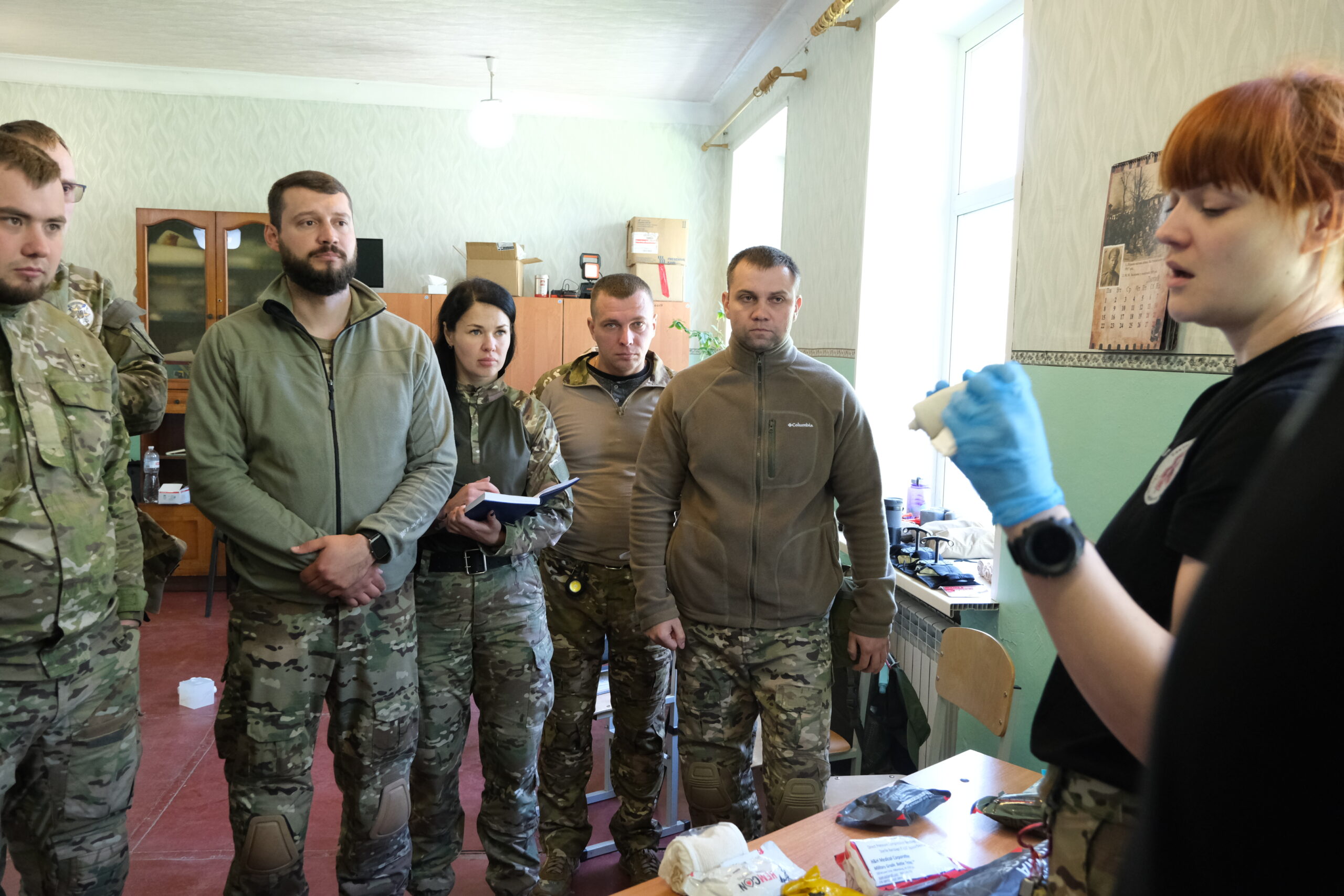
What is your greatest fear regarding the current war in Ukraine?
Oleksandr Savenko: My main worry is about the future of the younger generation. The ongoing advancement of Russian forces intensifies this concern, as the devastation caused by the conflict seriously endangers the safety and well-being of our children. The possibility of a prolonged war is especially alarming; a long-drawn-out conflict would undoubtedly put future generations at risk, making an urgent resolution necessary to protect their futures.
Can you make any predictions about whether this war is likely to drag on?
Oleksandr Savenko: It’s difficult to predict how long this war will last. Some people think it could end suddenly, but we can’t be sure. Others believe it ends when there are significant political changes, like if Vladimir Putin dies, but that’s a guess. Russia’s aggression and targeting of civilian areas are trying to scare people and divide the country. This shows why ending the war quickly and decisively is really important.
How do you envision the future of your native Donbas?
Oleksandr Savenko: I dream of a day when my friends and I can gather again at Donbas Arena for a Shakhtar match in the Champions League or when the region can host the European Championship again after our territory is liberated. That would be incredible. However, the current situation is dire, with daily shelling numbering in the thousands. When I was in Romania, there were over 2,000 shellings per day, and now the number can reach up to 4,000. I last visited Donetsk in 2013 and haven’t been to Ukrainian Donetsk or Crimea for over a decade.
When we spoke yesterday, you mentioned that there will soon be a thousand saved people, including paramedics. Is this the most significant achievement that you are proud of? Or is there another achievement during your time as a paramedic that you are incredibly proud of?
Oleksandr Savenko: I have personally saved 94 lives and participated in over 300 missions. While not every mission ended in a rescue, I consider the most significant achievement to be the establishment of our unique unit with the support of Unite with Ukraine and the Ukrainian World Congress. They provide us with vital tactical medical equipment and support. Working with Andrew, Olesya, Paul Grod, and the Ukrainian diaspora has allowed us to save many lives. This support is incredibly valuable, and I am very grateful.
What message do you want to communicate to the readers of this interview?
Oleksandr Savenko: I encourage everyone to prepare themselves by taking first aid courses. Shelling can happen in any city—whether Donetsk, Kyiv, Odesa, or Sumy. Missile attacks can occur anywhere, so knowing how to administer first aid to yourself, your loved ones, and others is crucial.
Take first aid courses, support the Ukrainian Armed Forces, and believe in our victory. Support those in the combat zone, including your relatives. Many are not only facing the enemy but also their inner struggles. The support of friends, fellow citizens, and acquaintances provides vital encouragement and strength for each new day and achievement.
Would you like to say anything to foreigners and members of the diaspora who are reading this interview?
Oleksandr Savenko: I want to express my sincere appreciation to our diaspora for their incredible support. Even though they are outside our country, we deeply feel their support, which is immensely important to us. After the war ends, I plan to visit our diasporas in Spain, Italy, Germany, Poland, and Australia, where I have new friends and genuinely appreciate their help.
